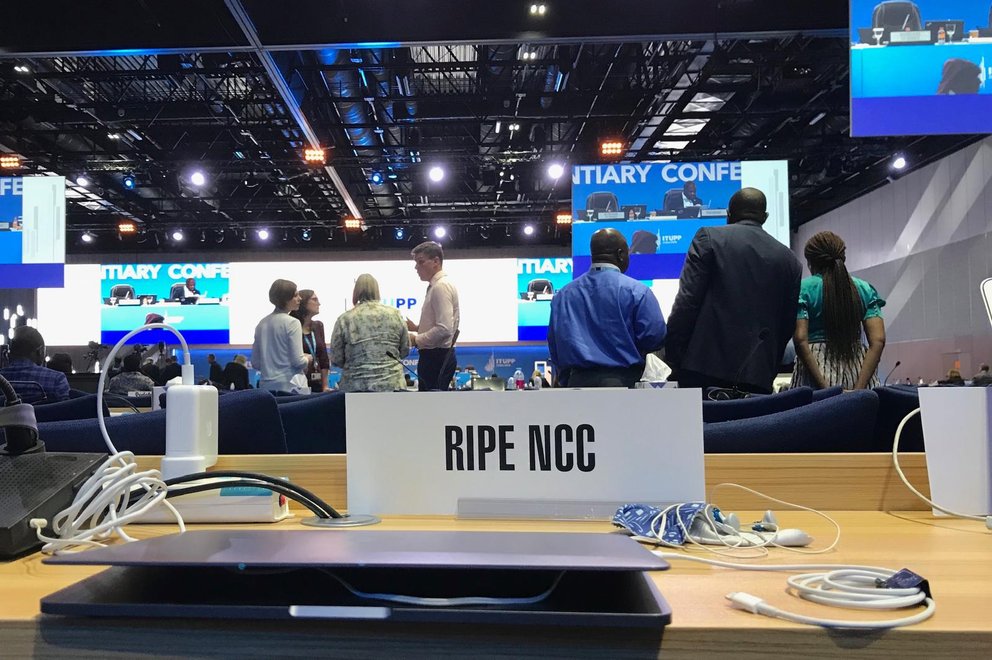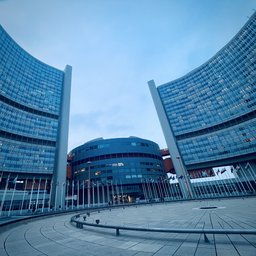Here's an update from the RIPE NCC on the ground in Dubai as the ITU Plenipotentiary reaches its halfway point.
In recent years, the RIPE NCC has adopted a “live blog” format to update the community during some of the longer conferences and events that we take part in (see our latest from the Internet Measurement Conference). The ITU Plenipotentiary, while three weeks long, does not really lend itself to this kind of reporting - with negotiations on seemingly minor wordings going back and forth through a dizzying array of plenaries, working groups, ad hoc groups and informal negotiations - a live play-by-play is not only difficult, but can actually impact discussions in unpredictable ways.
At the half-way point of this conference, though, it’s useful to provide an update on some of the developments and trends seen so far.
On one hand, a significant aspect of the conference has now concluded: elections to the various elected ITU leadership posts, the Radio Regulations Board, and Council. These dominate the scene for Member States throughout the first week, with campaigning, deal-making and receptions filling the lunch breaks and evenings.
The most noteworthy change to come out of this process was the election of a new Director of the ITU Telecommunication Development Bureau (BDT): Doreen Bogdan-Martin, of the USA, was elected to the position, notably becoming the first woman elected to one of the ITU’s five executive positions. Having worked as an ITU staff member for many years, she also bring s a wealth of knowledge and experience to the role, and will likely keep a focus on building the ITU’s development agenda. That’s significant for the RIPE NCC, as development (including capacity building and education) is an area where we can see potential for useful cooperation with the ITU going forward.
Three of the other positions (Secretary-General, Deputy Secretary-General and the head of the Standardization sector) saw re-election of the current holders, while Mario Maniewicz of Uruguay was elected to the post of Director of ITU's Radiocommunication Bureau (BR). Full details of the election results are available in the following ITU press releases:
- Elections completed for all top five management positions at ITU
- Elections completed for ITU Council and Radio Regulations Board
With the elections done, the work of the conference delegates has turned in earnest this week to agreeing the text of the many Resolutions, including those discussed in our earlier RIPE Labs article. While none of these are anywhere near final at the time of writing, a couple of relevant themes have emerged in discussions:
- There are different views on how broad or narrow the ITU’s remit should be, particularly in an era of rapid technological development (in the areas, for instance, of artificial intelligence and the Internet of Things), and particularly where those developments have significant intersection with communications technologies.
- There remain blocs within the ITU membership who would like the ITU to have a much more active role in representing the interests of its Member States in those bodies responsible for Internet administrative matters (with ICANN mentioned specifically); whether and what form this role should take are the subject of some very intense discussions (though the positive cooperation between the RIPE community and public sector stakeholders was noted in discussions).
- So far, discussion of the "Internet Resolutions" has focused on 101 and 102, with negotiations on 133 (on internationalized domain names) and 180 (on IPv6) yet to commence (but likely to be informed by the output of the 101/102 negotiations. The earlier article highlighted the significance of 101 and 102 to our community and the RIPE NCC.
The RIPE NCC has a number of staff attending the PP-18 in Dubai, and is working with other technical community representatives and Sector Members to inform Member States and the discussions. We will post a fuller analysis of the relevant developments and conference outcomes following the event’s conclusion on 16 November.





Comments 0
The comments section is closed for articles published more than a year ago. If you'd like to inform us of any issues, please contact us.